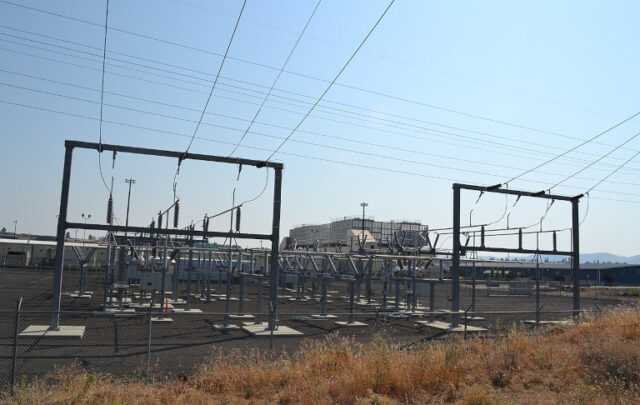 Slave driver: Energy use of a single person, at top, as represented by all the people it would take to generate it with sheer muscle power“A low-energy policy allows for a wide choice of lifestyles and cultures. If, on the other hand, a society opts for high energy consumption, its social relations must be dictated by technocracy and will be equally degrading whether labeled capitalist or socialist.” — Ivan Illich
Slave driver: Energy use of a single person, at top, as represented by all the people it would take to generate it with sheer muscle power“A low-energy policy allows for a wide choice of lifestyles and cultures. If, on the other hand, a society opts for high energy consumption, its social relations must be dictated by technocracy and will be equally degrading whether labeled capitalist or socialist.” — Ivan Illich
In 2009 a British family living in a four-bedroom house became the subject of a subversive energy experiment about modern slavery.
While the foursome flicked on gadgets one Sunday with the abandon of Roman patricians, an army of volunteers (The Human Power Station) furiously pedaled 100 bicycles next door to generate the needed energy.
The unsuspecting family, of course, had no idea they had been unplugged from a power grid fueled largely by fossil fuels.
At the end of the day the slave masters literally dropped their jaws when a BBC television crew introduced them to the exhausted slaves that boiled their tea. (Get this: it took 24 pedalers to heat the oven and 11 cyclists to make two slices of toast.)
At the end of the experiment many of the cyclists collapsed. Several couldn’t walk for days. The pedalers actually consumed more energy in food than they generated by pedaling.
The experiment crudely illustrated the global state of North American energy consumption (just imagine an empty yet well-lit house powered by 100 hungry cyclists). It also convinced one of the experiment’s designers, Tom Siddall of Electric Pedals, that “volunteer slavery” (hordes of sweating cyclists) or old fashioned shackled labour will power the future. “I have no doubt that slavery will return as the world’s energy resources get increasingly scarce.”
Oil removes the toil
Now most people don’t regard oil, say, as an energy slave or a liquid replacement for human muscle, but they probably should. Thanks to petroleum, every North American now behaves, thinks and often looks like an obese and overbearing 19th century slave owner.
Oil slaves, of course, are more portable and versatile than human muscle and now order our world. They grow and deliver food; transport friends and goods; and energize fields and cities. Every laptop computer arrives impregnated with 240 kilograms of oil. Like any good slave, oil removes the toil.
How many slaves for you?
How many energy slaves does a typical Canadian have at his or her disposal? Dave Hughes, perhaps Canada’s premier energy analyst and the nation’s former coal specialist at Natural Resources Canada, has done the math and we are not an emancipated people.
Hughes calculates that one barrel of crude (non-renewable sunshine captured in plants over the past 500 million years or so) contains approximately six gigajoules (six billion joules) or about 1,700 kilowatts of energy.
Now a healthy individual can pump out enough juice to light a 100-watt bulb or (360,000 joules) an hour. With weekends and holidays off and a sensible eight-hour day, Hughes figures that it might takes one person 8.6 years on a bicycle (or treadmill) to produce the energy now stored in one barrel of oil.
(Of course we could work those slaves 12 hours a day, seven days a week with no holidays, argues Hughes. In that case a barrel is equivalent to 3.8 years of human labor. But this columnist favours a more humane treatment.)
Given that the average Canadian now consumes 24.7 barrels of oil a year with scarcely a blink of the eye, every citizen employs about 204 virtual slaves. That’s a spectacular amount of power for any mortal to wield and much more than any Roman or Egyptian household ever commanded. Or five times more than average 19th century U.S. plantation owners.
Oil slaves fueled human population
What worries Hughes and many other energy analysts is that cheap energy slaves have created a formidable global dilemma. Before the Fossil Fuel Age (it started with coal burning around 1700), humans numbered less than one billion for their entire evolutionary existence on this planet.
After coal and then the discovery of oil in the 1850s, Homo sapiens exploded to an astounding population of 7 billion in just 170 years. And non-renewable energy slaves paved the way. Oil, in other words, was a powerful Viagra for the species (with unwieldy erections and other side-effects).
Oil also broke all previous energy thresholds. While human population grew 5.4 times since 1850, per capita energy consumption exploded at a rate of 8.5 times. In fact total energy consumption jumped 45 times.
These extraordinary changes gave peasants vicarious lifestyles once only enjoyed by minor kings and queens. In 1850, the average Tom, Dick or Harry claimed but 2.2 fossil fuels slaves thanks primarily to machines powered by coal, says Hughes. But by 2009, each member of the average human family crowded their household with 93.8 slaves thanks to the combined work of oil, gas and coal. (Add wood, hydro and nuclear energy and another 17.6 diligent slaves must fit in the door.)
Unsustainable
Given the realities of peak oil (the end of cheap slaves and the advent of extremely brutal substitutes) and the fact that China and India now want more petroleum slaves too, that level of consumption or slavery can’t be sustained. In fact Hughes warns that the world of the petroleum slave owner can only get smaller. He calls it “the Energy Sustainability Dilemma.”
This indelicate dilemma will be ugliest for those who employ the most slaves. Right now the average Canadian lives as extravagantly as the feverish English master of a large Caribbean sugar plantation. In fact Canadians typically boss around five times more slaves than the global average.
“Your average Canadian consumes five times the world average per capital consumption, seven times the per capita consumption in China and 29 times the per capita consumption in India,” calculates Hughes.
(For the record the new and leaner slave masters of Shanghai or Tianjin burn but 2.4 barrels of oil a year which puts 20 coolies at their beck and call.)
“Maybe we have been even less cognizant of the services provided by fossil fuels than people did from their slaves,” reflects Hughes. “Slavery, after all was in your face. Now it’s all about filling up the tank.”
In his thoughtful 1973 essay, “Energy and Equity,” the radical Catholic theologian Ivan Illich questioned whether “the well-being of a society can be measured by the number of years its members have gone to school and by the number of energy slaves they have thereby learned to command.”
While most people worried about the scarcity of fodder for these slaves, Illich asked whether free men really needed so many slaves in the first place.
The iconoclast concluded that each and every human being was entitled to a certain amount of energy, but beyond a certain threshold, people lost both their freedom and humanity as slave owners typically do.
Even if nonpolluting slaves were feasible and abundant, Illich reckoned “that the use of energy on a massive scale acts on society like a drug that is physically harmless but psychically enslaving.”
He then dropped a Promethean question that most economists, philosophers, environmentalists and energy analysts avoid: can a society be progressively hooked on a larger numbers of energy slaves and remain autonomous?
It remains civilization’s central question. 























